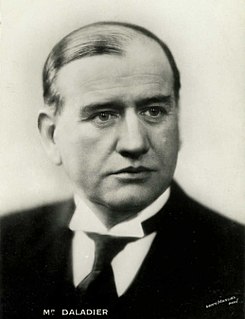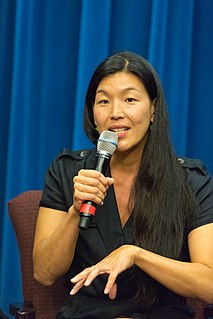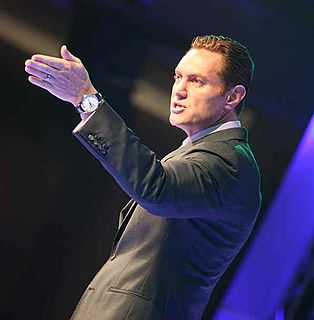A Quote by Indira Gandhi
Nowadays you can no longer let yourself be indoctrinated - the world is changing so fast! Even what you wanted twenty years ago is no longer relevant today; it's outdated.
Related Quotes
Comedy today is not what it was years ago. It's always changing, in particular to female comics. No longer are certain subjects considered to be a male preserve. Women can talk about sexuality and their bodily functions and it can be very, very entertaining. It's changed the impact of comedy acting.
A wider of more altruistic attitude is very relevant in today's world. If we look at the situation from various angles, such as the complexity and inter-connectedness of the nature of modern existence, then we will gradually notice a change in our outlook, so that when we say 'others' and when we think of others, we will no longer dismiss them as something that is irrelevant to us. We will no longer feel indifferent.
Any time you sincerely want to make a change, the first thing you must do is to raise your standards. When people ask me what really changed my life eight years ago, I tell them that absolutely the most important thin was changing what I demanded of myself. I wrote down all the things I would no longer accept in my life, all the things I would no longer tolerate, and all the things that I aspired to becoming.
Today, financial capital is no longer the key asset. It is human capital. Success is no longer about economic competence as the main leverage. It is about emotional intelligence. It is no longer about controls. It is about collaboration. It is no longer about hierarchies. It is about leading through networks. It is no longer about aligning people through structures and spreadsheets. It is about aligning them through meaning and purpose. It is no longer about developing followers. It is about developing leaders.
My idea in Half the Kingdom was simply, or not so simply perhaps, that medical science has given us twenty extra years of life. Those twenty extra years - one is grateful for them, one is happy, but they also give you ten or twenty years more of losing your faculties. That is actually the origin of my notion. Once you live longer than you're supposed to live, things go dreadfully wrong. But nevertheless, you're not dead.











































